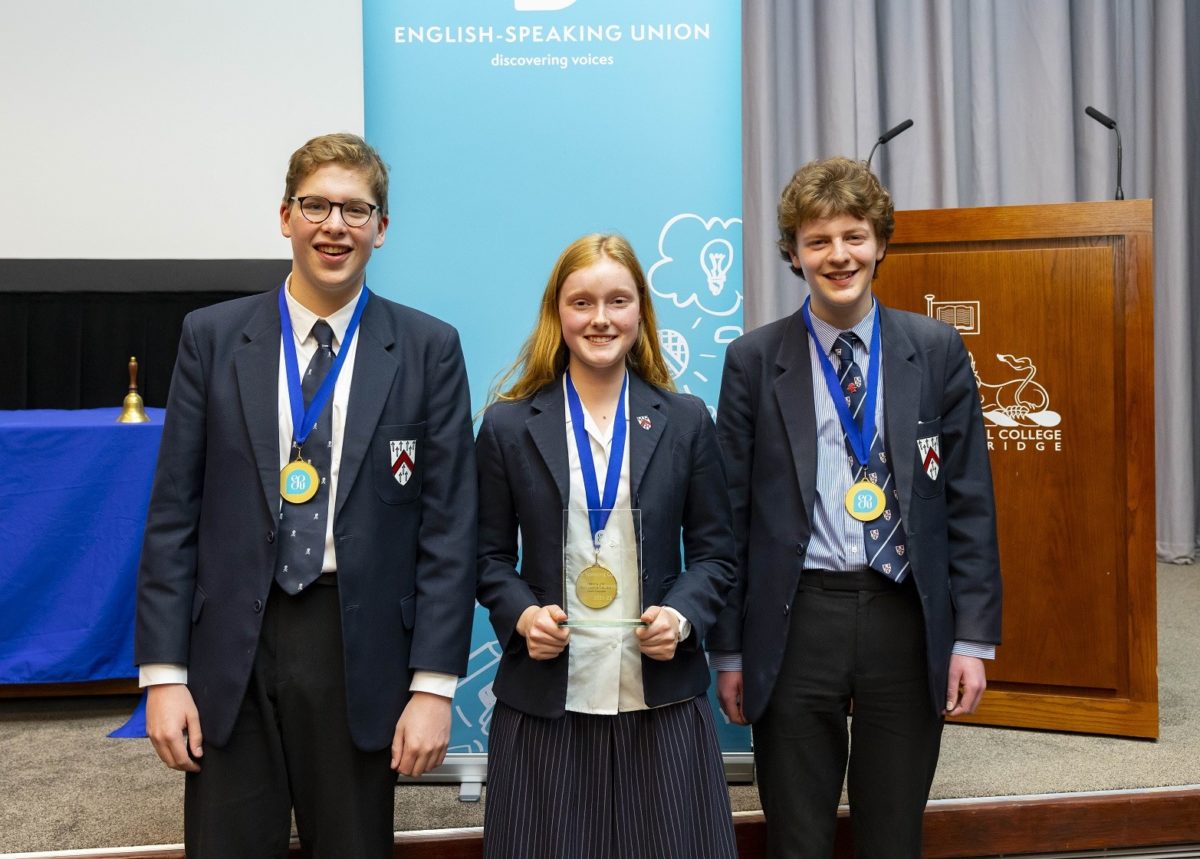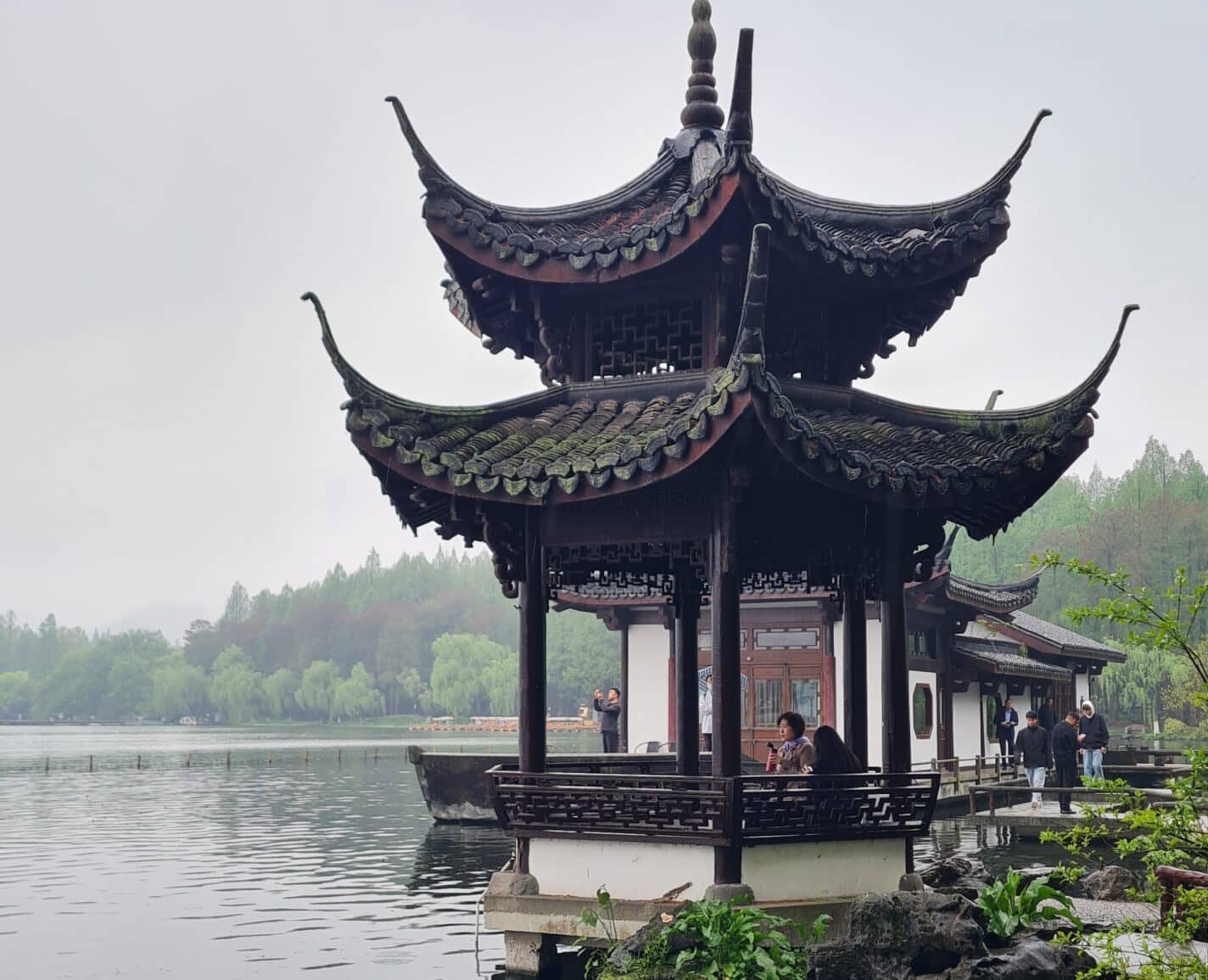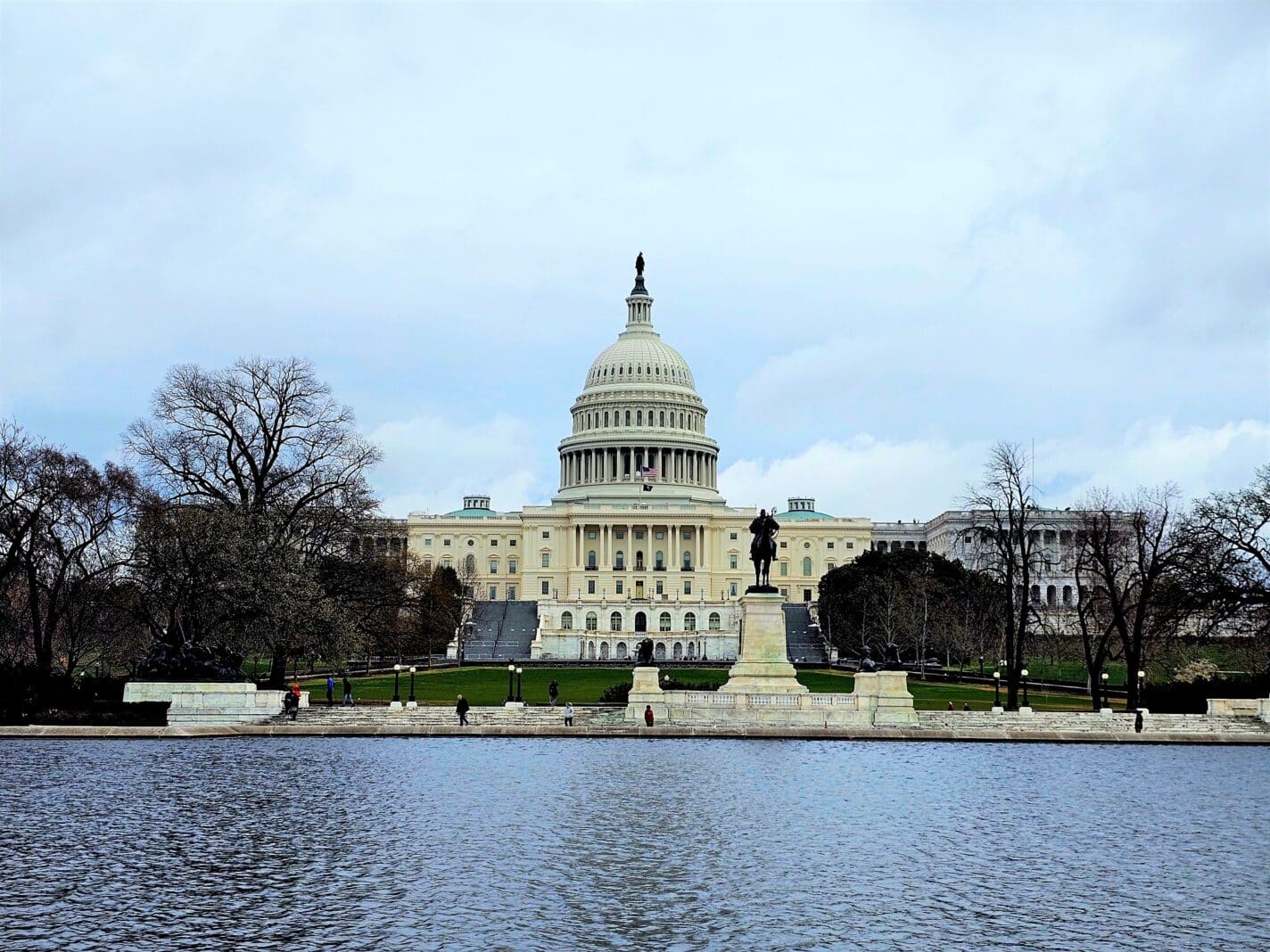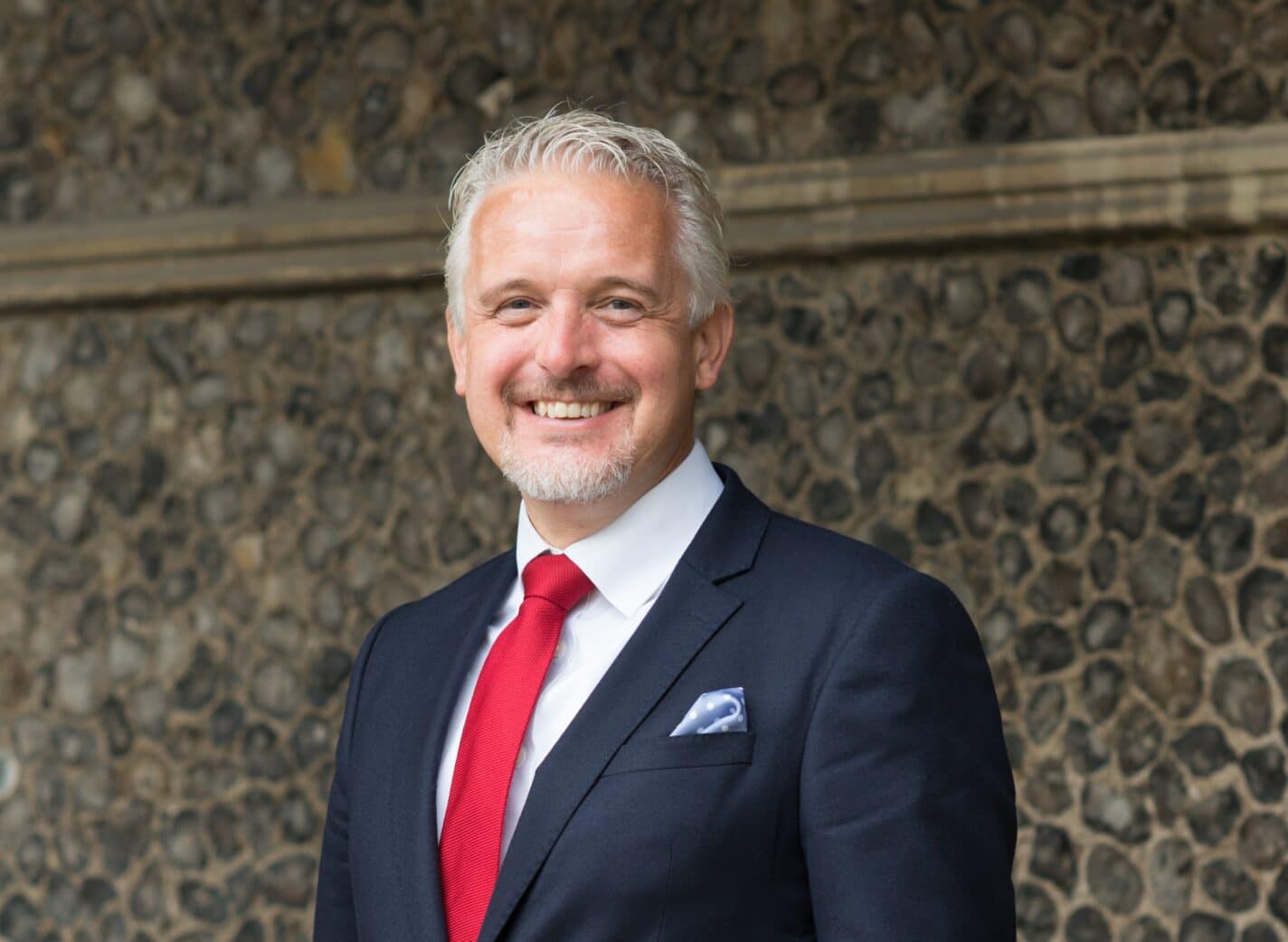Following months of diligent preparation and competition, three Fifth Formers advanced to the final of the English-Speaking Union Churchill Public Speaking Competition at Churchill College, Cambridge on Sunday. After a full day of high-quality performances, George (B), Iona (D) and Robert (L) were delighted to be presented with the trophy for Best Team by Jennie Churchill, great-granddaughter of Sir Winston Churchill.

Over four hundred teams competed at area, local and regional rounds of the competition, and thirteen schools were selected to attend the final at Cambridge on Sunday. In the morning semi-final competition, the teams participated in a strenuous round of excellent presentations. From there, the Oundle pupils were selected along with five other schools to proceed to the afternoon final in front of a panel of five judges, as well as Jane Easton, Director-General of the English-Speaking Union, and Laurence Geller, Chairman of the International Churchill Society.
The competition’s unique format pairs the speaker from one school with the chair and questioner of another, encouraging quick thinking and relationship building. The chair and questioner only meet their opposing team on the day of the competition and do not know the topic they will be introducing.
As the speaker on his panel, George delivered a nuanced and confident talk titled “Is America still the land of opportunity?” in which he aimed to provide “a glimpse into the deep and dark palace of Americanism” by discussing the past, present and future states of American opportunity. Afterwards he fielded questions from the panel’s Questioner and from the audience about immigration, the historical notion of the American dream, America’s moral leadership, the future of its aspirations, the electoral process and the impact of social media on culture.
Iona and Robert served as chair and questioner for a talk that argued against the proposition, “Ethical hackers should remain simply criminals”. Iona deftly introduced the topic and summarised the Speaker’s argument. As questioner, Robert probed for clarification about the legal status of ethical hacking, the distinction between what is ethical and what is not, the responsibility for ethical hacking and the issues that are best solved by ethical hacking.
The judges’ criteria for evaluation included marks for content, style and tone, and for the winning team, a demonstration of their effectiveness as a team, and the consistency of strength in their performance.




